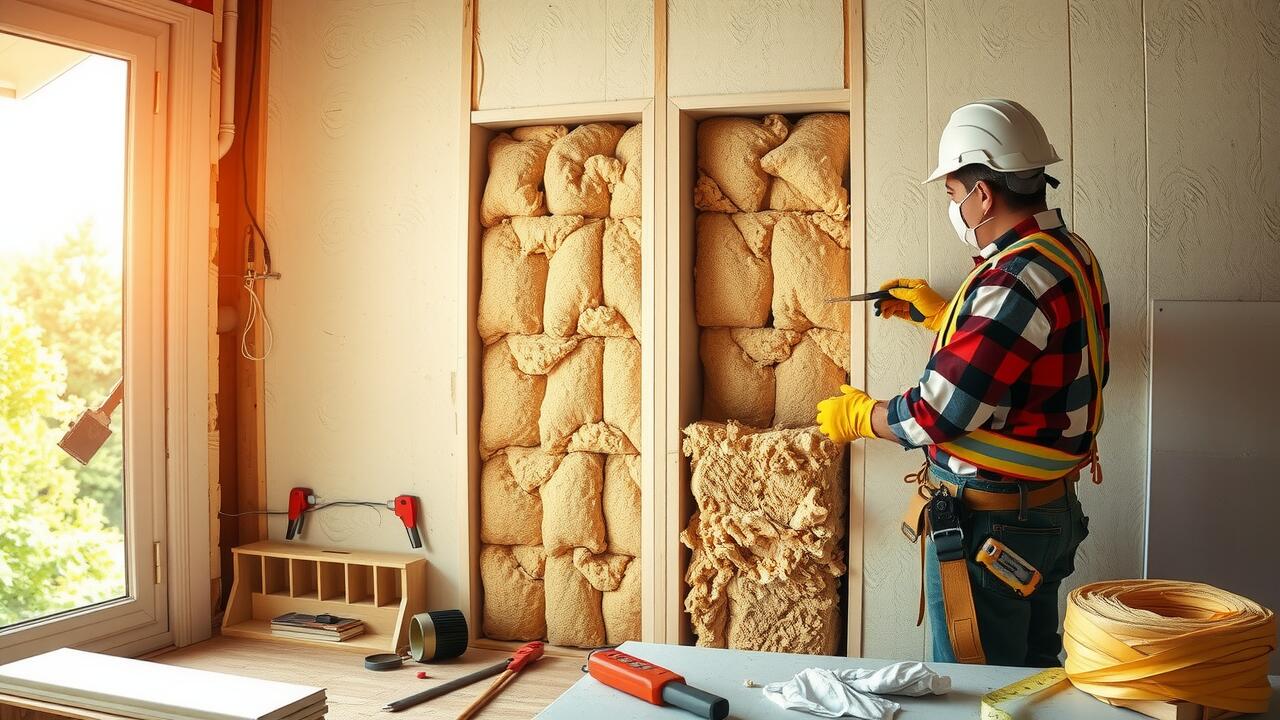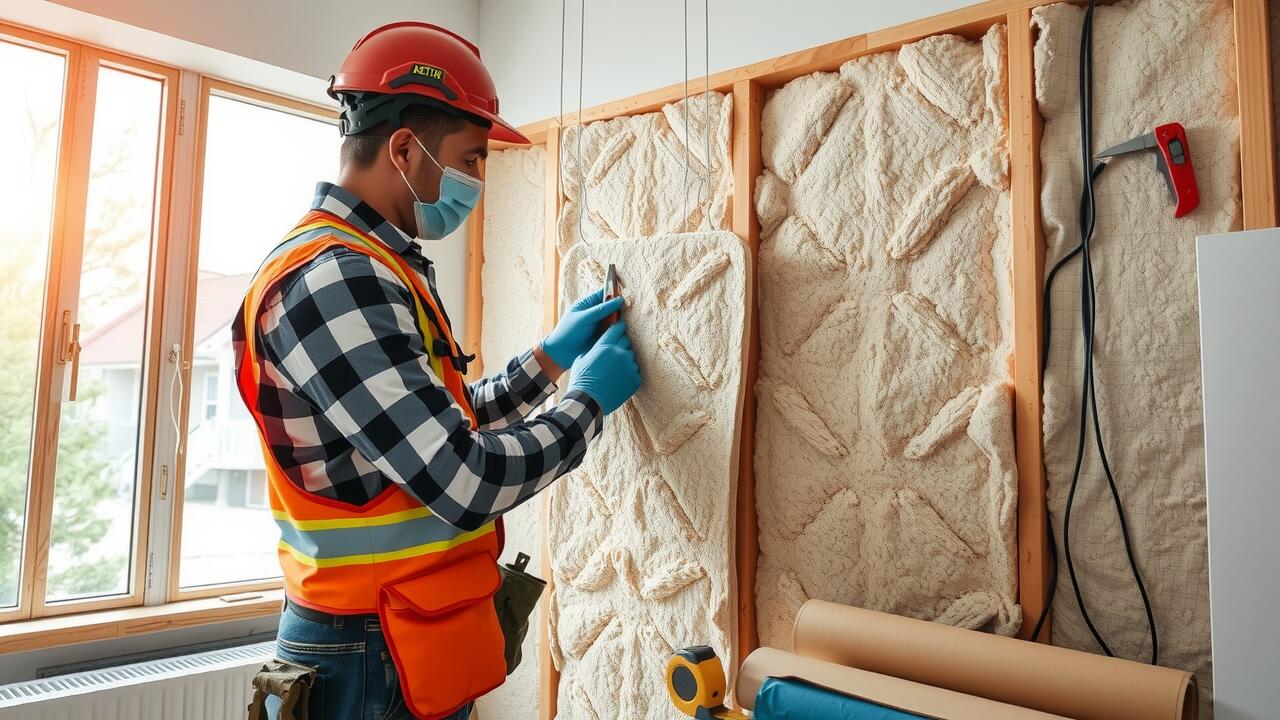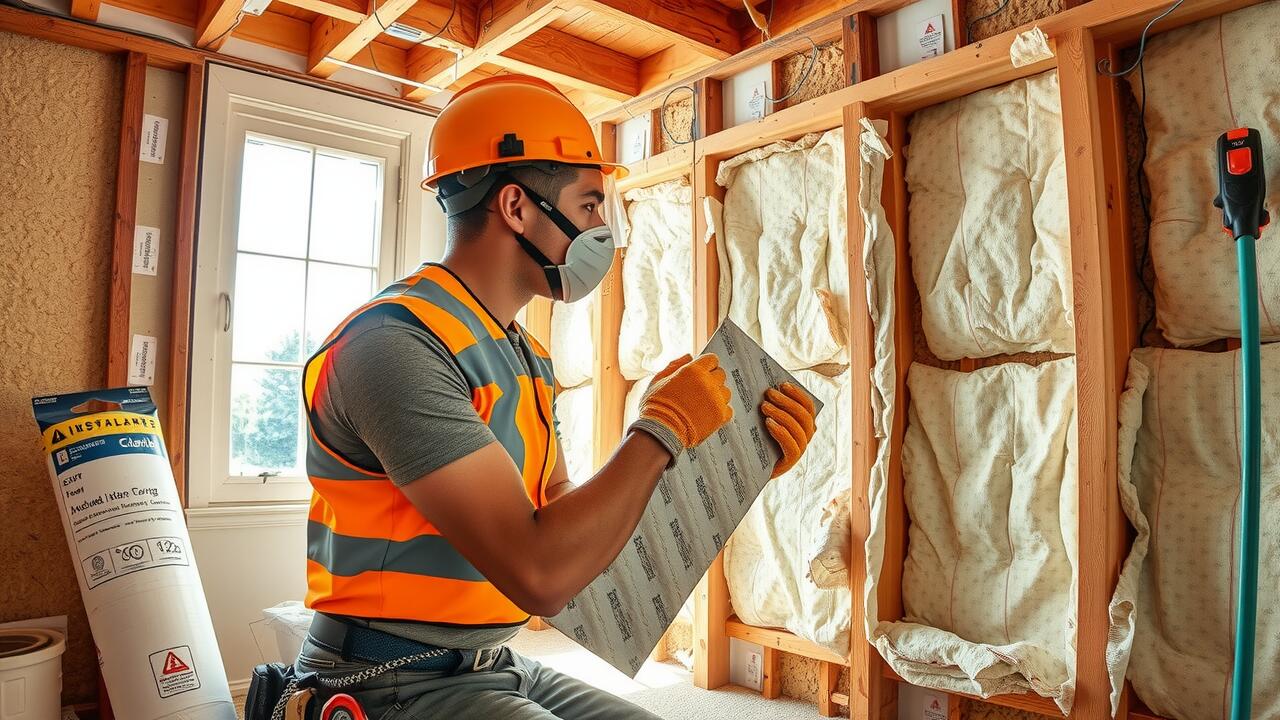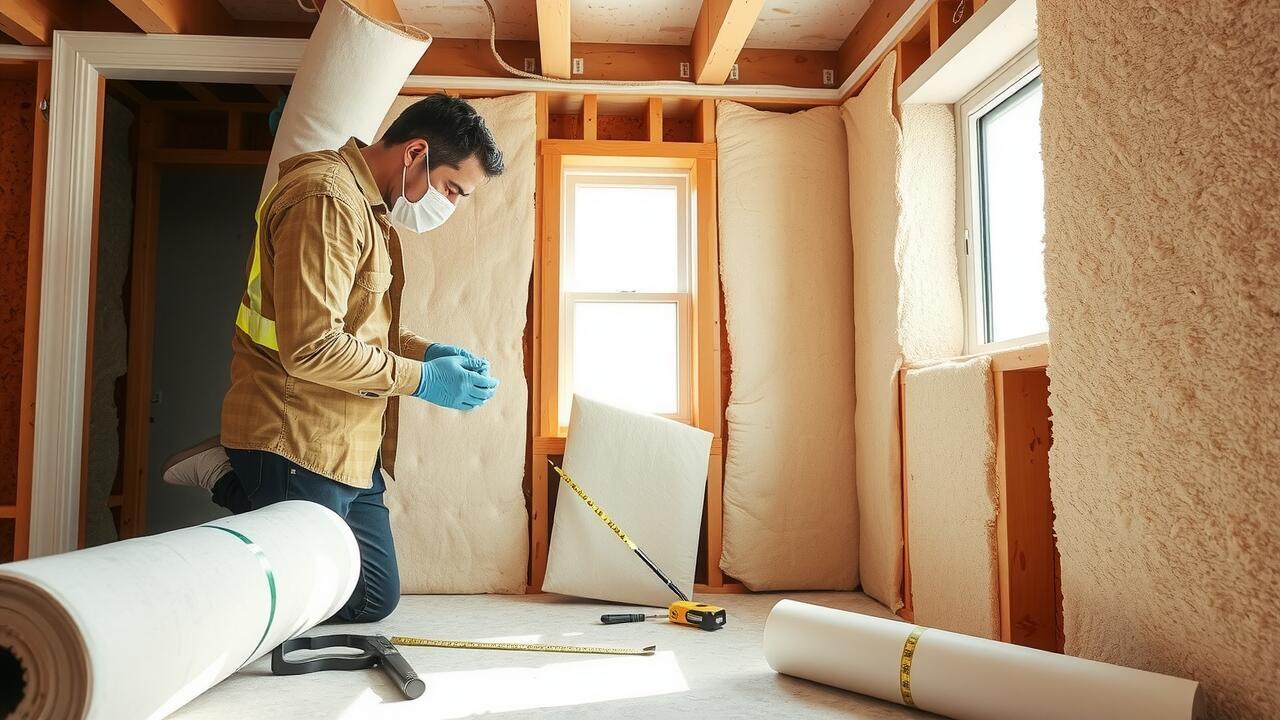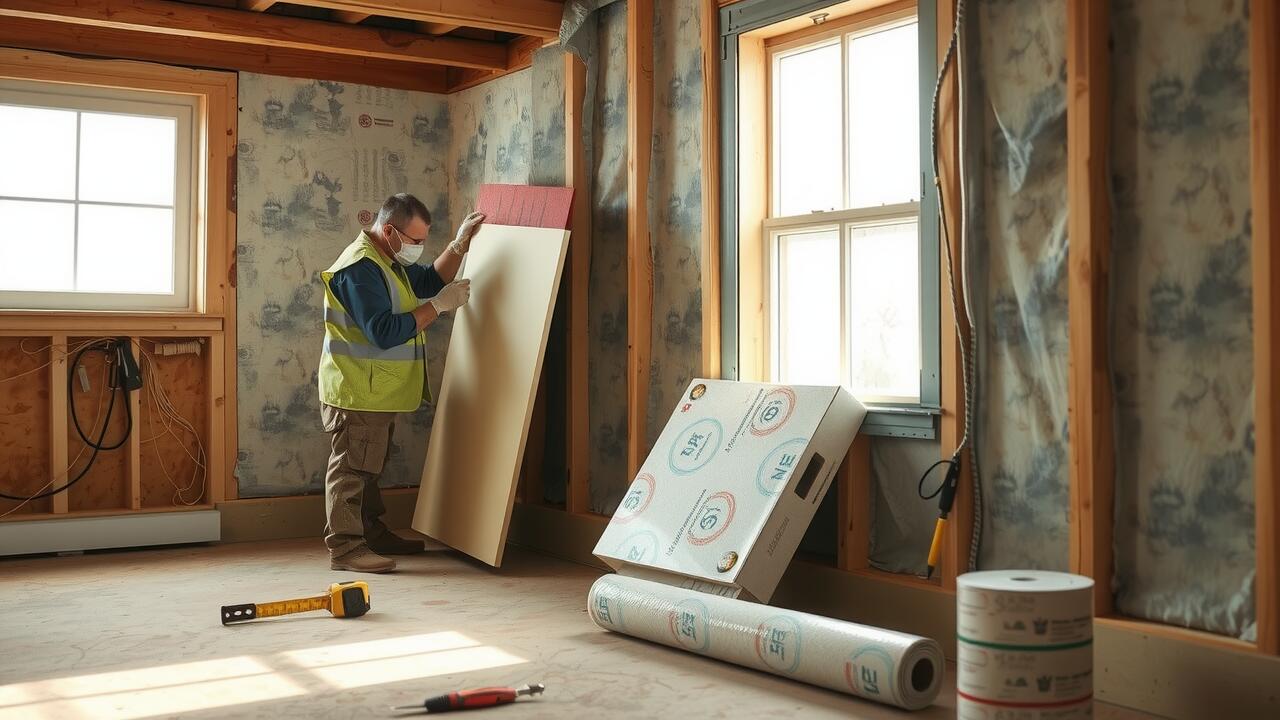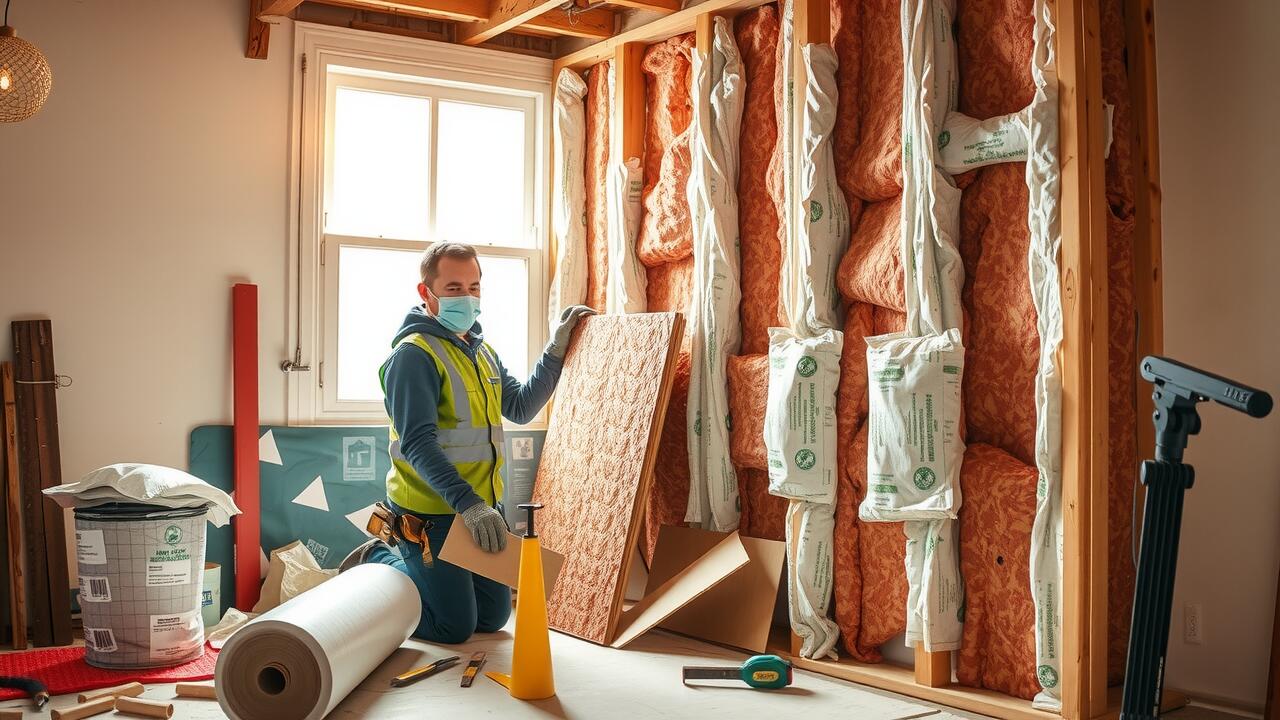
Noise Reduction Capabilities
One of the most significant advantages of wall insulation is its ability to reduce noise transmission between rooms and from external sources. Insulation materials, such as mineral wool or soundproofing foam, effectively dampen sound waves, creating a quieter indoor environment. Properties in areas with high traffic or close to noisy neighbours can greatly benefit from improved acoustics, allowing for more comfortable living conditions. The implementation of Milton, Stoke-on-Trent wall insulation in such contexts can help to foster a serene atmosphere at home, making it a popular choice among local residents.
Moreover, the soundproofing characteristics of wall insulation can enhance privacy within a property. Rooms that require confidentiality, such as bedrooms or studies, can remain undisturbed by conversations or external noise. The extent of sound reduction tends to vary based on the thickness and density of the insulation material used in Milton, Stoke-on-Trent wall insulation projects. This targeted approach to insulation not only contributes to personal comfort but also adds a layer of value to the property, as prospective buyers often appreciate quieter homes.
The Role of Insulation in Soundproofing
Insulation plays a critical role in soundproofing spaces, helping to manage noise levels within a building. Materials such as mineral wool or acoustic foam can significantly dampen sound transmission between rooms and from external sources. These materials absorb vibrations and reduce the need for additional soundproofing techniques. Homeowners seeking quieter environments can benefit from installing appropriate insulation in walls, particularly in areas close to high-traffic zones or noisy neighbours.
Meir, Stoke-on-Trent Wall Insulation exemplifies how effective insulation can enhance comfort in residential properties. By minimising sound leakage, it provides a more serene living experience. Properly installed insulation can lead to a noticeable reduction in unwanted noise, creating an environment ideal for relaxation or work. This is especially beneficial in urban areas where external sounds can be a constant distraction.
Environmental Benefits
Wall insulation offers considerable environmental benefits by significantly reducing energy consumption in homes. Proper insulation helps to maintain a consistent indoor temperature, which means less reliance on heating and cooling systems. This energy efficiency not only lowers utility bills but also contributes to a reduction in greenhouse gas emissions. Properties with effective insulation, such as Milton, Stoke-on-Trent wall insulation, demonstrate how insulation can have a positive impact on both the environment and household budgets.
By minimising heat loss during colder months and keeping interiors cool in summer, wall insulation plays a crucial role in reducing the carbon footprint of a building. Homeowners are increasingly recognising that sustained energy efficiency leads to lower demand for fossil fuels. The environmental advantage is compounded when multiple properties in a community, like those with Milton, Stoke-on-Trent wall insulation, commit to improved insulation practices, ultimately leading to a more significant collective impact on energy conservation.
Reducing Carbon Footprint with Proper Insulation
Proper wall insulation plays a significant role in reducing one's carbon footprint. By effectively preventing heat loss during colder months, insulated homes require less energy for heating. This not only leads to decreased energy consumption but also reduces greenhouse gas emissions associated with energy production. The more energy-efficient a home is, the lower its environmental impact becomes, showcasing insulation as a vital element in the journey towards sustainability.
In regions like Meir, Stoke-on-Trent, wall insulation can have a pronounced effect on energy efficiency. Local homes that are well-insulated experience enhanced thermal performance, leading to a noticeable drop in energy bills. Homeowners can benefit from both financial savings and the satisfaction of contributing to a greener planet. Such advantages highlight the importance of investing in quality wall insulation as a means to foster environmental responsibility.
Common Misconceptions
One common misconception about wall insulation is that it completely eliminates noise. While proper insulation can significantly reduce sound transmission, it does not create a soundproof environment. Many people assume thicker walls or more insulation materials will block all noise, yet some sounds may still penetrate through windows and doors if they are not properly sealed. Understanding the limits of insulation can help homeowners make more informed decisions about their soundproofing requirements.
Another myth revolves around the belief that wall insulation is only beneficial in cold weather. While it is true that insulation helps maintain warmth during winter months, it also plays a critical role in keeping spaces cool during warmer seasons. Insulation helps regulate indoor temperatures by minimising heat transfer. The advantages of wall insulation are evident year-round, particularly in places like Meir, Stoke-on-Trent, where both heating and cooling are necessary for comfort.
Debunking Myths About Wall Insulation
Many homeowners believe that wall insulation is solely about temperature control. While it significantly reduces heat loss, it also plays a vital role in sound insulation. In places like Milton, Stoke-on-Trent, wall insulation helps in minimising external noises, contributing to a quieter indoor environment. This common misconception overshadows the multifunctional benefits of insulation, which can enhance both comfort and tranquillity.
Another prevalent myth is that installing wall insulation is a large-scale, disruptive process. Contrary to this belief, modern techniques allow for less invasive methods, retaining the aesthetic and structural integrity of homes. In Milton, Stoke-on-Trent, residents often find that with the right professionals, the installation can be completed efficiently and with minimal disruption, making it accessible to various property types.
FAQS
What is wall insulation and how does it work?
Wall insulation involves materials added to the walls of a building to reduce heat transfer. It works by minimising the amount of heat escaping in winter and entering in summer, helping to maintain a consistent indoor temperature.
Can wall insulation help reduce noise?
Yes, wall insulation can significantly reduce noise transmission between rooms and from external sources. The materials used in insulation can absorb sound, making spaces quieter and more comfortable.
What are the environmental benefits of wall insulation?
Wall insulation can lead to a reduced carbon footprint by lowering energy consumption for heating and cooling. This not only conserves energy but also contributes to reducing greenhouse gas emissions.
Are there any misconceptions about wall insulation?
Yes, common misconceptions include the belief that all insulation is the same, that it is only beneficial in cold climates, or that it is overly expensive. In reality, there are various types of insulation tailored for different needs, and it can save money on energy bills in any climate.
Is wall insulation worth the investment?
Yes, while the initial cost of wall insulation can be significant, the long-term savings on energy bills, improved comfort, and increased property value typically make it a worthwhile investment.
